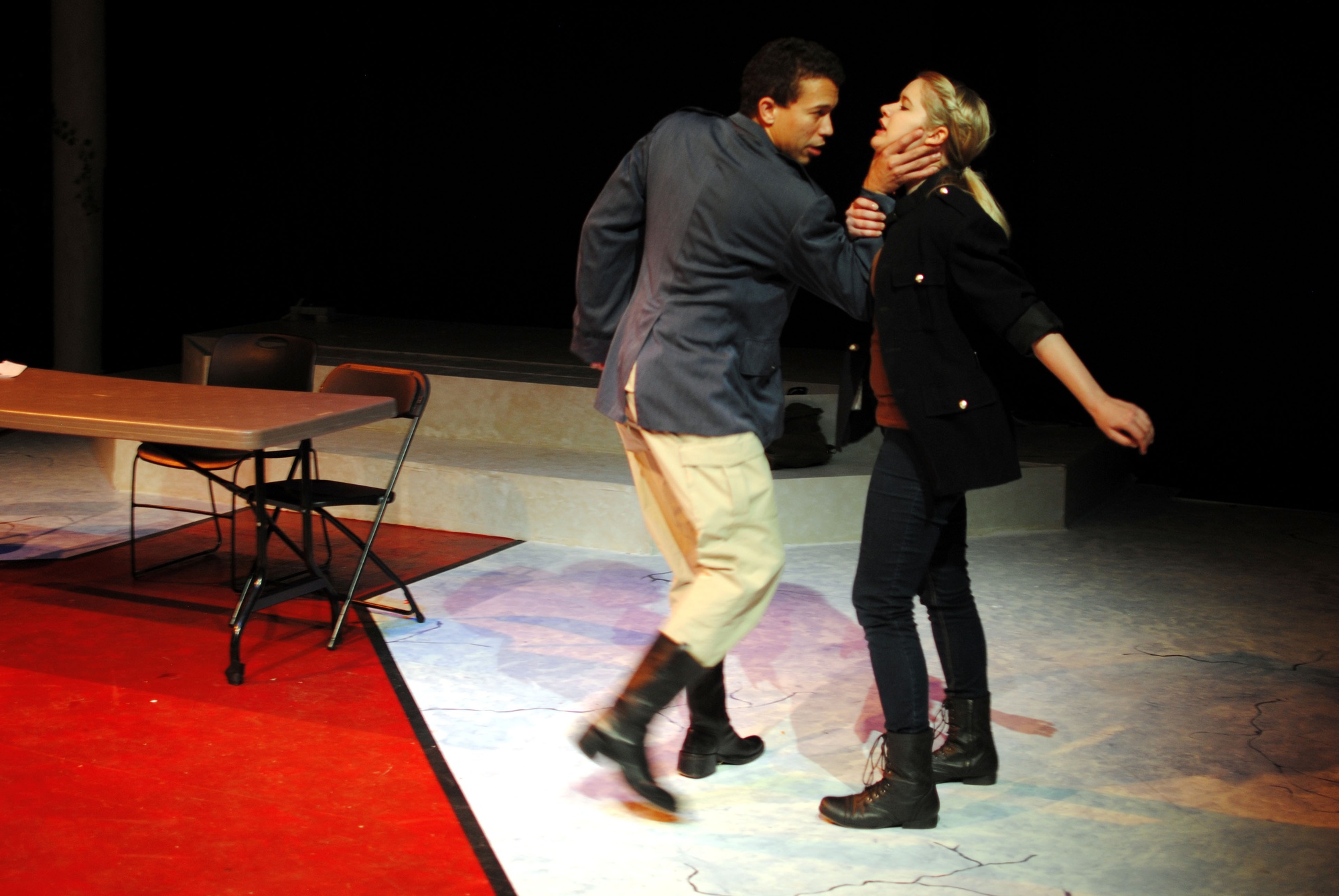
News
HMS Is Facing a Deficit. Under Trump, Some Fear It May Get Worse.

News
Cambridge Police Respond to Three Armed Robberies Over Holiday Weekend

News
What’s Next for Harvard’s Legacy of Slavery Initiative?

News
MassDOT Adds Unpopular Train Layover to Allston I-90 Project in Sudden Reversal

News
Denied Winter Campus Housing, International Students Scramble to Find Alternative Options
'Julius Caesar' A Giant Among Theater

The Harvard-Radcliffe Dramatic Club’s production of Shakespeare’s “Julius Caesar,” which ran until Saturday in the Loeb Ex, was among the best-executed student theater productions this year. The creative staging and mild text revision of director Alice Abracen '15 synthesized with strong performances on the part of the actors, resulting in an updated performance that maintained the dynamics and power of the original. This result provided a model for modern settings of classic works.
Abracen made some excellent decisions with regard to blocking that would have been wholly inappropriate in a larger venue but made tremendously effective use of the Ex’s more intimate dimensions. The seating was divided into three segments, and actors’ entrances and exits occurred along paths going through the audience, immersing viewers more fully in the action of the play. Since the space was small enough, the actors could freely orient themselves at any angle to the audience and still be heard, even while turning their backs partially or totally to the front of the stage. This freedom resulted in strikingly natural body language that is difficult to attain on a typical stage, where all lines must more or less be delivered outwards for there to be any hope of them being heard.
Of course, it was the skill of the actors that legitimized the creative use of the stage. Spencer J. Horne ’14 played Brutus with an understated tragic intensity that never dipped into melodrama; rather than being overwhelmed by this power, his colleagues complemented it with sophistication and elegance. Matthew B. Barrieau ’16 gave a strong Caesar, and managed to cast his shadow over the whole play, a difficult trick in view of the fact that his character receives a fraction of the stage time that Brutus gets. Two other performances were particularly worth noting. Lelaina E. Vogel ’15 played Cassius with all the complexity that character deserves, a dark, compelling foil to the shining sorrow and nobility of Brutus. In one or two instances of dramatic intensity, her diction quavered a bit more than some would allow, but never became grating or distracting. Mikhaila R. Fogel ’16 brought a surprising vigor to Casca, a figure who is typically marginalized by the giants of Caesar, Brutus, and Cassius. Her acidic delivery and brilliant command of gesture made her Casca one of the most complex characters in this production, truly giving the words of the text a life of their own.
Abracen also decided to cast a few female actresses in traditionally male roles, a change that she handled artfully. While the script confusingly kept some wording from the original text—“master” was not amended to “mistress," for example—the treatment was generally careful in execution. As gender dynamics are of secondary concern in the text of “Julius Caesar,” there was nothing marred by changing gender roles for characters, and indeed, the subtle sexual tension between Brutus and Cassius was a fascinating addition to the play. Abracen was careful not to overdo this, however, always keeping it as an undercurrent that contributed to rather than distracted from the main dramatic action.
This “Julius Caesar” provided a guide for other modern-style productions of classic works—while innovating the text, it did not fundamentally disturb the essential strength of the play as written. The production provided a subtle and elevated rendition, and the excellent work of the actors heightened the benefits of Abracen’s directorial decisions.
Want to keep up with breaking news? Subscribe to our email newsletter.
